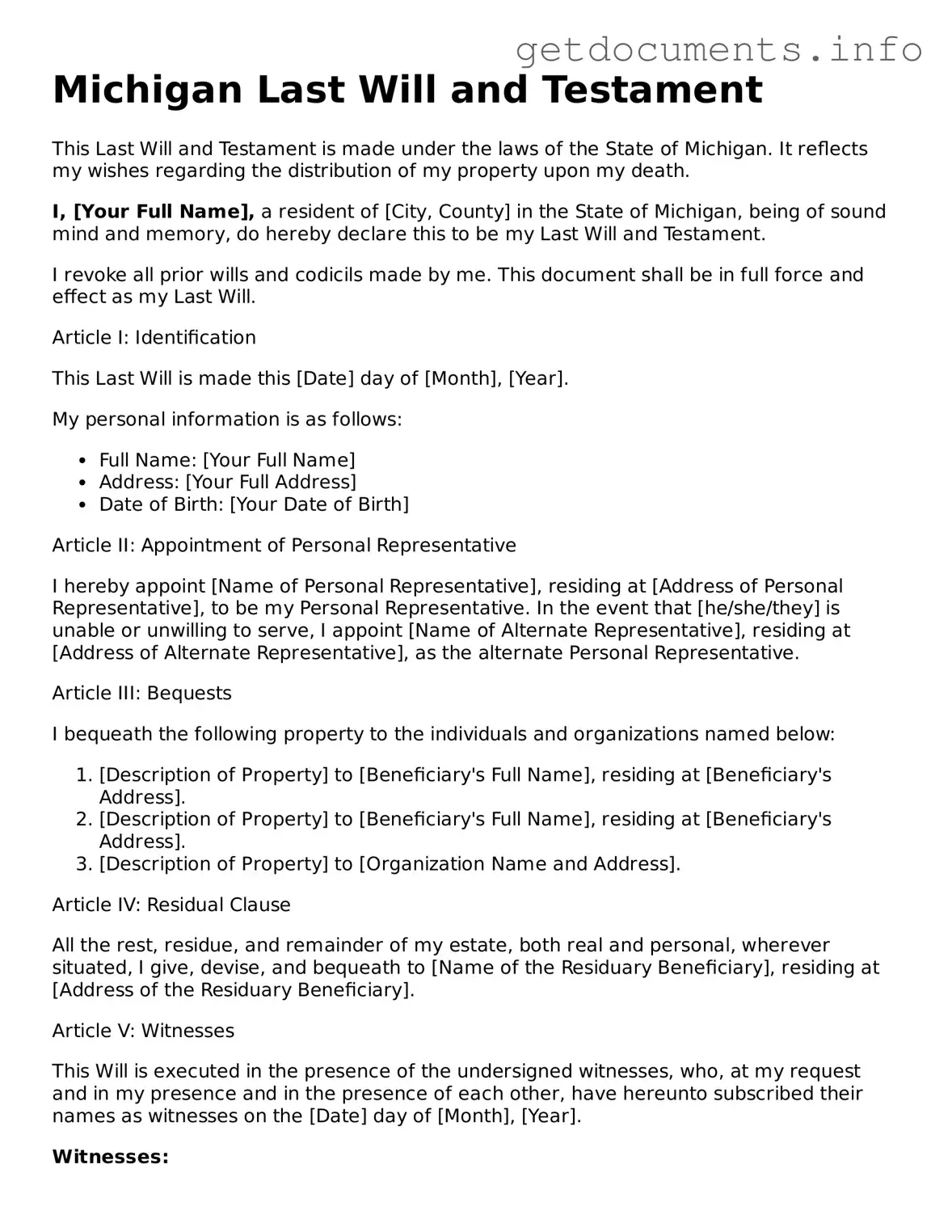Free Last Will and Testament Template for Michigan
A Michigan Last Will and Testament form is a legal document that outlines how an individual's assets and affairs should be handled after their death. This form ensures that your wishes are respected and provides clarity for your loved ones during a difficult time. To begin securing your legacy, consider filling out the form by clicking the button below.
Access Last Will and Testament Editor

Free Last Will and Testament Template for Michigan
Access Last Will and Testament Editor
Got places to be? Complete the form fast
Fill out Last Will and Testament online and avoid printing or scanning.
Access Last Will and Testament Editor
or
⇩ PDF File
